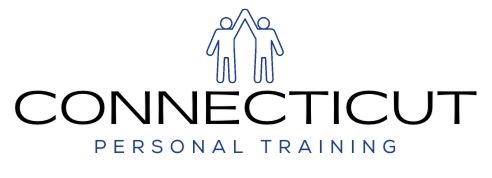Fat. It’s a dangerous and scary word. For years during the 70s, 80s and 90s, we thought that it was simple: Fat made us fat.
In reality, we now know a little better. Fat is an essential part of a healthy diet. Though there is still conflicting information out there, we thought we would ask our personal trainer in West Hartford Connecticut— who is also well-versed and educated in nutrition– for his thoughts.
The most common fats we use in our diet are: Butter, Margarine, Lard, Bacon Fat, Shortening, Olive Oil, Coconut oil, Other miscellaneous vegetable oils.
Our West Hartford Connecticut personal trainer told us that many people are not truly aware of the difference between the fats. In cooking, for instance, certain fats accomplish certain results.
In our bodies, it is the same way. Essentially there are two categories of fats: Saturated and Unsaturated fats.
According to our personal trainer in West Hartford Connecticut, this is the main difference:
Saturated fat has a high proportion of fatty acid molecules without double bonds. Typically, but not always, saturated fat is solid at room temperature.
Unsaturated fat is a type of fat that has a high proportion of fatty acid molecules with at least one double bond. Typically, though not always, unsaturated fat is liquid at room temperature.
Our personal trainer in West Hartford stated that saturated fats are known to be much less healthy for our bodies than are unsaturated fats, but reiterated the fact that we need (healthy) fats for good nutritional health.
Butter is perhaps the most loved fat. It’s creamy and delicious because it’s made from cream.
Our personal trainer in West Hartford Connecticut told us that butter is usually 80% fat. The other 20% is a mixture of water and milk solids. Butter is very versatile and adds a ton of flavor to all sorts of recipes, from sweet to savory. While it should not be completely off limits unless your medical professional says so, it should be used sparingly, and still can be part of a healthy diet.
Margarine appeared in the 1860s because people couldn’t afford butter. Over the past several decades, studies have shown that margarine is unhealthy, because it contains hydrogenated fats and/or trans fats. It can contain as little as 35% fat because it is often diluted, so the flavor isn’t as good.
Our personal trainer in West Hartford suggests that when you have to choose between butter or margarine, in most cases, butter is the healthier of the two.
Lard and bacon fat are both pig fat and both versatile for frying and roasting. They are 100% fat. Your grandmother probably made the flakiest pie crusts with lard (as, it does not taste like pork). It is, however, saturated fat and though in recipes it is delicious, it should be used sparingly in a healthy diet.
The term shortening, according to our personal trainer in West Hartford Connecticut, can actually encompass all fats and oils but typically we think of a saturated, lard lookalike in a big blue tub. Shortening are made with hydrogenated oils so they are semi-solid at room temperature. Like lard, shortening is also 100% fat, and like margarine, it can be filled with the artificial trans fat. You should, perhaps, use it sparingly, or maybe just confine it for baking use once in a while.
For heart health, our West Hartford Connecticut personal trainer says, nothing beats olive oil and other various vegetable-based oils with low saturated fat content.
Looking at coconut oil, which has gained a lot of positive press lately, virgin coconut oil is less refined than any other type of coconut oil (which is good for us). This type of oil contains antioxidants which can have heart-health benefits. Virgin coconut oil has also been shown to reduce total and bad cholesterol, and some studies show that it can increase calorie burning and, thereby, help with weight loss.
Our personal trainer in West Hartford Connecticut goes on to say that olive oil (vs. coconut oil) has been more widely researched for its health properties up until now. Olive oil has more “good fat” –meaning monounsaturated and polyunsaturated fats—than does virgin coconut oil. Furthermore, olive oil has less saturated fat than coconut oil. Keep in mind, also, that saturated fat in vegetable oils are not as bad as those from animal-based oils/fats.
Both oils have a place in our daily diets. Both are healthy, and for the record, much healthier than their saturated counterparts, aforementioned.
Still our personal trainer in West Hartford Connecticut says there is a place in a healthy diet for many types of fat. While anything—fat in particular—should be used in moderation and not be over-consumed for good health, we should not be afraid of adding a little fat in our diets.



